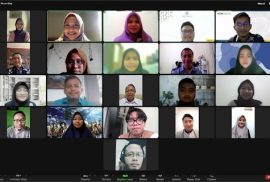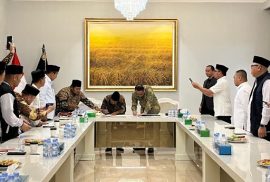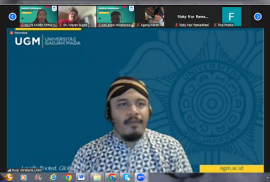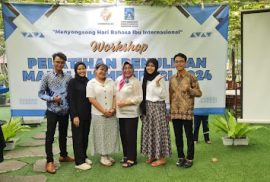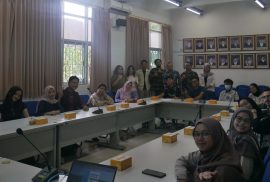SDGs 4: Quality Education | SDGs 8: Decent Work and Economic Growth
The Middle Eastern Cultural Studies Master’s Study Program held an online event “Welcoming New KBTT Students for the Even Semester of 2023/2024” on Monday, February 12th, 2024. This event was attended by lecturers in the Middle Eastern Cultural Studies Master’s Study Program, namely Prof. . Dr. Lasiyo, M.A., Prof. Dr. Fadlil Munawwar Manshur, M.S., Dr. Hindun, M. Hum., Dr. Arifuddin, Lc. M.A., and Dr. Moh. Masrukhi, M. Hum.
Throughout the history of its establishment starting in 2020, the Middle Eastern Cultural Studies Master’s Study Program accepted new students for the first time in the even period with a total of 10 students. This activity was opened by an opening remarks from the Head of the Intercultural Department FCS UGM, Prof. Dr. Sangidu, M. Hum. Prof. Sangidu who emphasized that the acceptance of new students for the even semester was a real effort made by the Faculty of Cultural Sciences to provide opportunities for undergraduates to deepen their knowledge in the Middle Eastern realm.
The event continued with a presentation of graduate profiles and curriculum by the Secretary of the Intercultural Department, Dr. Mahmudah, M. Hum. The curriculum stipulates that the KBTT Alumni profile has great opportunities in employment, ranging from academics and researchers to diplomats. Throughout this activity, students are expected to be able to prepare themselves to take part in learning in the Study Program in order to achieve a dedicated graduate profile and contribute to advancing education in Indonesia.

